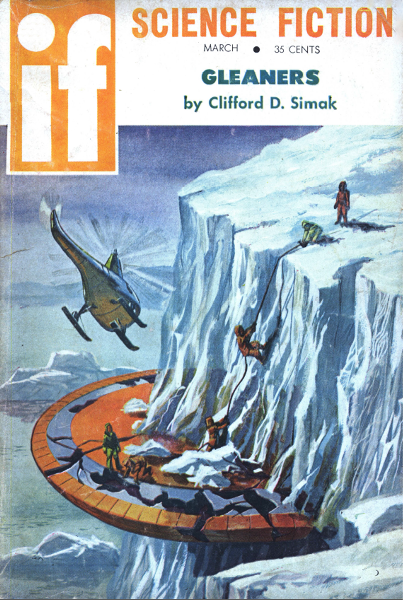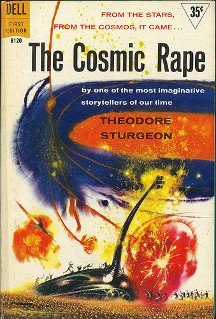[if you’re new to the Journey, read this to see what we’re all about!]

by Victoria Silverwolf
One of the most notable events this month, at least to those of us who look to the stars, was a speech by President Kennedy at Rice University.
We choose to go to the moon. We choose to go to the moon in this decade and do the other things, not because they are easy, but because they are hard, because that goal will serve to organize and measure the best of our energies and skills, because that challenge is one that we are willing to accept, one we are unwilling to postpone, and one which we intend to win.

Fittingly, the second team of NASA astronauts was announced this month, captured here in a lighter moment.

Clockwise from top right are Frank Borman, John Young, Tom Stafford, Pete Conrad, Jim McDivitt, Jim Lovell, Elliot See, Ed White and Neil Armstrong.
Will one of these men become the first human being (or at least the first American) on the moon? We'll have to wait some years to find out.
Meanwhile, back here on Earth, the airwaves are dominated by the smash hit, Sherry, by the Four Seasons. Personally, lead singer Frankie Valli's falsetto makes me want to leave the planet myself.
A more practical form of escape can be found in the pages of the October 1962 issue of Fantastic.

Another fine cover by the great Emsh captures the mood of a major new story by one of the masters of imaginative literature.
The Unholy Grail, by Fritz Leiber
The author has published a number of tales relating the adventures of the red-haired giant Fafhrd and his much smaller companion the Gray Mouser since 1939. This story takes place before the two met (although there is one line which suggests that the Grey Mouser caught a glimpse of Fafhrd during an encounter with pirates.)
Not yet known by his famous nickname, the hero is simply called Mouse. He is the apprentice of a benign practitioner of white magic. The local Duke hates all magicians. His daughter secretly takes lessons from Mouse's master, and a gentle romance seems to be blooming between the two young persons. The story begins with the Mouse returning from a long and difficult quest for the magician. He finds his master dead and his home burned to the ground. This is obviously the work of the Duke, and Mouse seeks revenge by turning to black magic.
The story vividly portrays the terrible price one must pay in order to make use of evil magic, and becomes at time a tale of horror. There is a great deal of psychological depth to the characters. The Duke is haunted by the memory of his dead wife, who was stronger and crueler than he is. He tries to force his meek daughter to become like her.

Leiber's female characters are usually charming and beautiful, but this time he explores the mind of the daughter to a greater degree than usual. She is bitterly unhappy because of the way her father torments her. She suffers even more when the Mouse blames her for betraying the magician. During the climactic scene, when she plays a vital role in the Mouse's scheme of vengeance, she shows unexpected strength of character.
The way in which the naïve and nonviolent Mouse is transformed by tragedy into the cynical, sword-wielding Gray Mouser is sure to capture the imagination of the reader. Five stars.
The Double-Timer, by Thomas M. Disch

A new author makes his debut with this tale of murder and time travel. In the next century, special members of the police force are able to investigate crimes by projecting themselves into the recent past. (The device works only back in time, and no more than eighteen hours.) The narrator is one such officer, who works out a plan to murder his wife and place the blame on the man whom he believes is her lover. Things don't work out as he expects. The plot is cleverly thought out, although this story might seem more suited to the pages of Ellery Queen's Mystery Magazine, which sometimes publishes crime fiction with science fiction elements. Perhaps the author will follow the lead of Donald Westlake and John D. MacDonald and turn to writing thrillers. In any case, he shows promise and intelligence. Four stars.
Any Questions?, by Leo P. Kelley

In this brief story, aliens come to Earth disguised as humans and offer various people devices which allow them to create anything they desire. The result is not surprising, but the tale is told in an efficient manner. Three stars.
Nor Iron Bars a Cage, by Ron Goulart

This is a farce about the warden of an automated prison. A glitch in the program (created in a very silly manner) causes him to be mistaken for a prisoner on death row. The robot guards refuse to believe his story. With only a few days until his execution, he must find a way out. The ending of the story is as silly as the beginning. The robot clergyman provides some mild amusement. Two stars.
Presence of Mind, by Martin Armstrong

The Fantasy Classic for this issue is from the pen of a prolific British author of fiction and poetry. It is taken from a 1934 collection of his short stories. The protagonist takes a shortcut through a private garden on his way to an appointment, hoping to avoid notice. When confronted by a servant, he tries to escape by pretending to be looking for the home of a man with the ridiculously unlikely name of Z. Q. Muggleton Spoffin. To his astonishment, this is the name of the man who lives there. In an attempt to get out of this absurd situation, he makes up a story involving people with other outrageous names. Incredibly, all the imaginary people he creates actually exist. As the story goes on, he even makes up an imaginary brand of lawnmower. This is an eccentric story, which plays games with the nature of reality. The mood is generally one of light comedy, although there is a subtle tone of uneasiness. It is definitely better than the old pulp stories the magazine usually reprints. Three stars.
The Teachers Rode a Wheel of Fire , by Roger Zelazny

A young writer who has already appeared in the publications edited by Cele Goldsmith a couple of times offers another very short story. In this one, a primitive human (or humanoid) witnesses the arrival of a spaceship bearing two technologically advanced humans (or humanoids.) They try to teach him how to use simple tools of wood and stone by enticing him with food. He doesn't seem to learn anything, but at the end of the story he gets an idea in an unexpected way. It was never clear to me whether this was another planet, or Earth thousands of years ago being visited by aliens (or, possibly, time travelers.) Despite this vagueness, and the fact that we never learn why the advanced characters are trying to teach the primitive character, the story is of some interest. I hope the author, who obviously has talent and imagination, goes on to write longer and more complex stories. Three stars.
Autogeddon, by Geoffry Wagner

Here we have a fierce and violent satire of the modern automobile culture from a name new to me. In the future, the United States is ruled by a dictatorship. The entire nation has been paved over. Cars zoom by at enormous rates of speed. A license is required to be a pedestrian. Even so, drivers have the freedom to run over any victims they find. These murders are televised as entertainment. The plot involves a college professor and one of his students who try to rebel against this bloody society. This is a grim and powerful tale, which may make you think twice the next time you try to cross a busy street. Four stars.

You may not be able to buy a ticket to the moon yet, but at least you can purchase a trip into the realms of wonder.






























